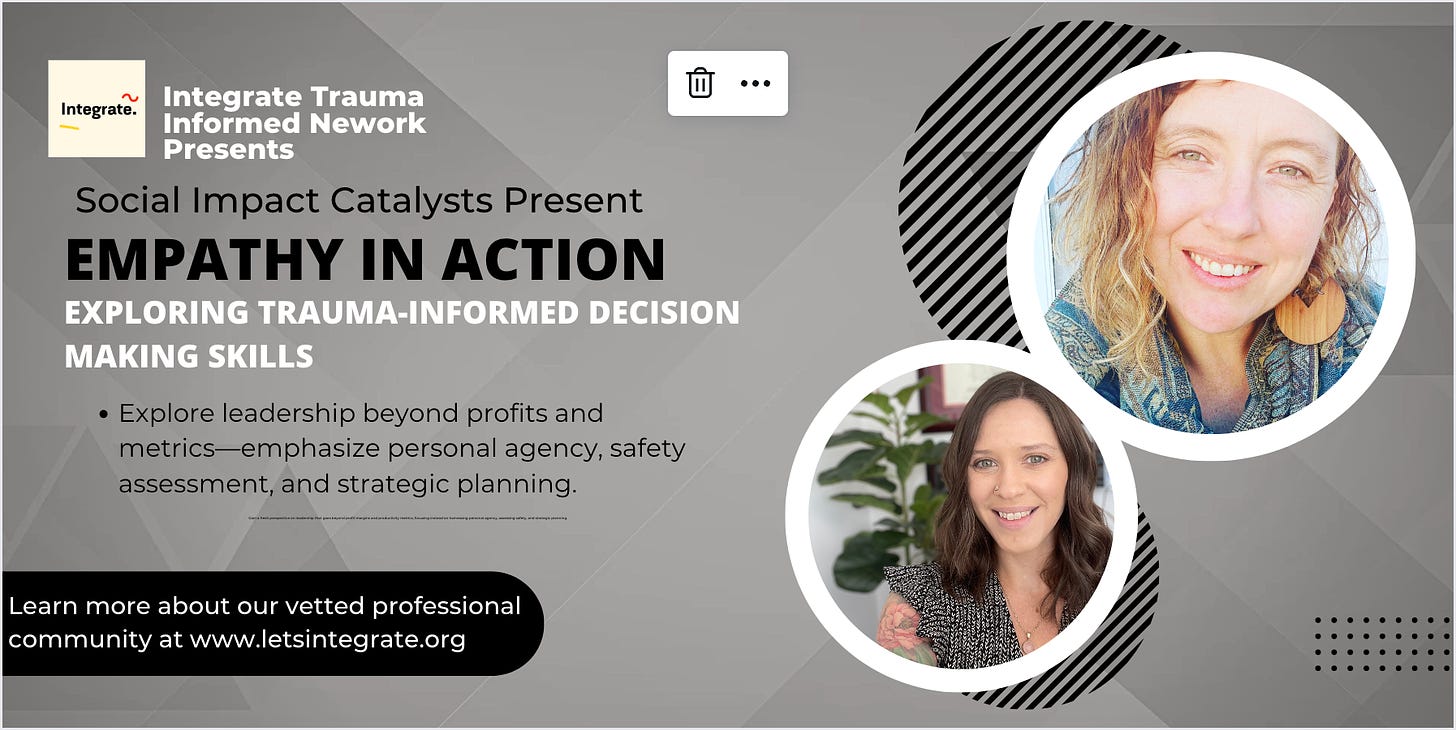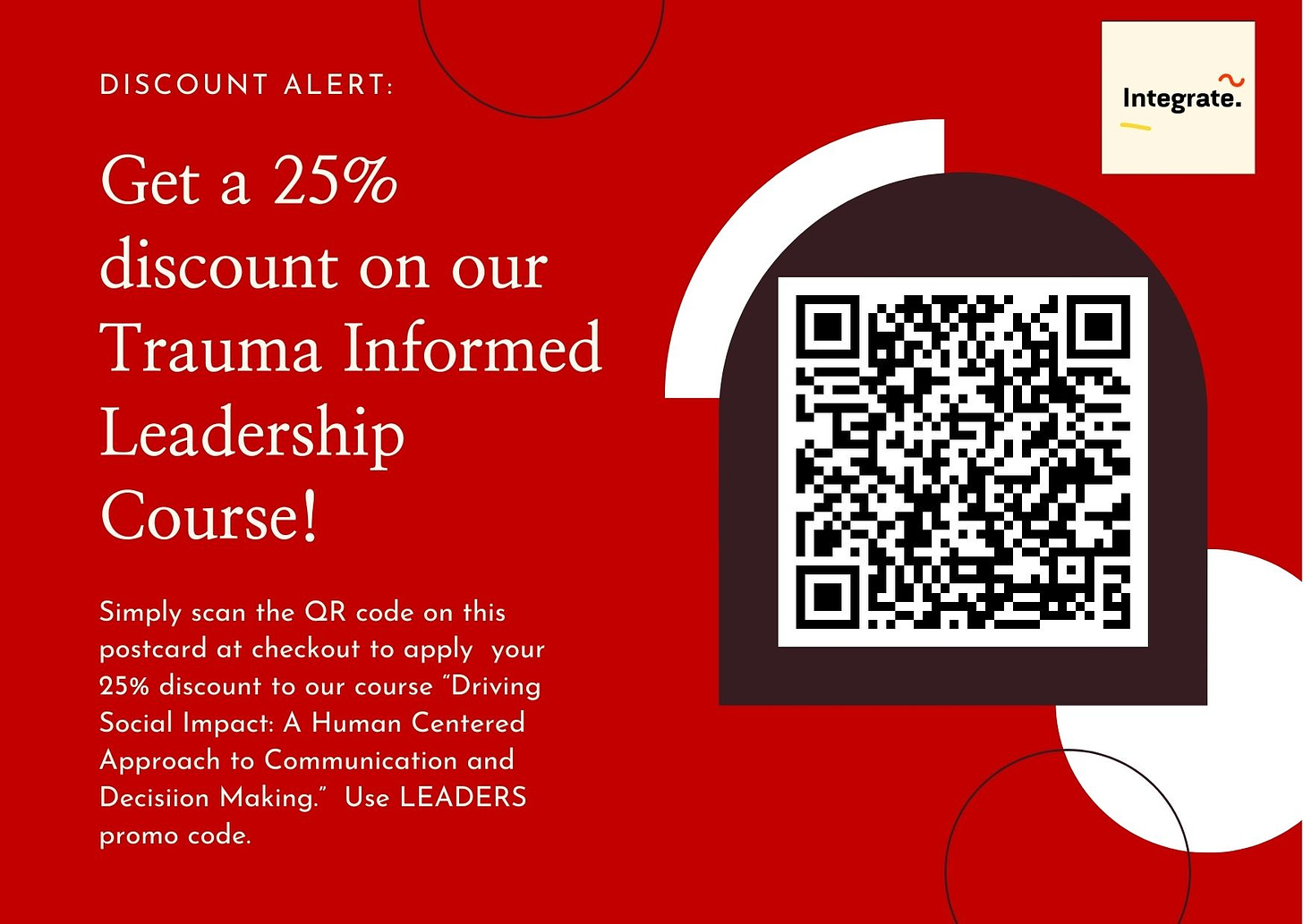Elevated Feedback: Human-Centered Advice for Effective Communication
Strategies on Offering Feedback from a Trauma Informed Lens
About the Author: Sarah O’Brien
I am a licensed psychotherapist with over 15 years of experience specializing in anxiety, substance use disorders, and relational trauma. I am a trauma-informed coach and consultant, and the founder/CEO of her therapy and consulting business. I also am the creator of the Trauma-Informed Crisis Response Guide, aiming to make trauma-informed practices accessible to all. Her my work is driven by neuroscience and evidence-based practices.
Introduction
Feedback about how we’re doing, particularly at work, is inevitable. Feedback about how we’re doing in other areas is also very likely throughout our lifespan. For instance, we may receive feedback in a peer group, by a healthcare provider or therapist, from a life coach or business consultant. There is a difference between unsolicited advice and constructive feedback. It can be difficult for people to give any feedback due to fears of being disliked or hurting others’ feelings. The reality is that most people are not good at having difficult conversations at home, at work, and in other social settings; it’s a skill that requires training and practice. And if you want to remain human-centered in your communication, then thinking about the human involved in receiving the feedback is imperative, and also requires training and practice.
Checking In With Ourselves First
Providing constructive feedback to someone is often a difficult conversation. How you show up to engage in a difficult conversation matters. The first thing to ask yourself is “Am I resourced enough to both have this conversation and address any uncomfortable feelings that come up for me on the back end?” Maybe something like, “Am I grounded and connected to myself today?” Or, “Have I thought about what I want to say and how I want to say it before approaching this person or conversation?” Self-awareness and accessing your own internal safety or comfort is necessary to be able to offer constructive feedback in a human-centric way.
Another trauma-informed professional in our community offers up her insights. Katie Kurtz, Trauma-Informed Trainer and Space Holder, states, “When we discuss the concept of constructive feedback, I always like to pause and encourage us to opt for curiosity over judgment, first, using this question before I offer feedback: How am I at receiving feedback? So often we are focused on giving of feedback that we forget to build our capacity to receive feedback. As a leader, we can help those we work with build their capacity for receiving feedback with a human-centered and trauma informed approach. “
Katie addresses an important aspect of human-centered communication in the constructive feedback process: us! Not only do we need to pay attention to how we’re resourced to GIVE feedback, but also about how we RECEIVE feedback; this is equally important. Self-reflection and self-awareness are also crucial components to ALL human-centered communication.

Giving constructive feedback in a human-centered way must take into account 1) How you communicate the feedback and 2) Who you are communicating the feedback to—and remembering the receiver is a human first (before client, colleague, employee, patient) and should be addressed with respect and empathy to convey they have inherent value and worth. Full acceptance of everyone’s humanness. An idea to keep in mind is asking permission first, before providing the feedback. This gives the person a choice over whether or not they are ready (or resourced enough to be able have the conversation, and potentially care for themselves or emotions that come up for them on the back end) for hearing this constructive feedback. This also means allowing space for the person to say ‘no’ if they are not in a place to hear the feedback. If this occurs, a tip: practice the pause. You might be thrown if they say no, they are not ready for feedback. So, take a beat and re-center yourself. Consider how to honor your boundaries (which may be a deadline if it’s with an employee in a work setting) while also offering choice. This can look like allowing space for that person to decline today, and reminding them of the deadline, then offering 2-3 other dates/times to reconvene and discuss the feedback.
Other skills needed to give human-centered constructive feedback:
Acting with purpose—being intentional with what you say, how you say it, why you’re saying it.
Being clear and transparent vs. vague, evasive, or with jargon.
Use active listening—listening with intent to hear and not just to respond.
Expressing empathy—by paying attention to verbal and non-verbal cues of the other person.
Re-focus communication on the person, rather than on the behavior, or the behavior you want to see.
Language such as “growth areas” rather than “problem areas” that focus on skill-development, rather than skill-deficit.
Leaving the person with an understanding of your role and/or support as they work to integrate the feedback.
Allowing for questions, comments, and feedback from the person back to you.
Consider if it’s a space where there can be collaboration between the two parties in addressing the constructive feedback given. Inviting active participation with ideas and suggestions; having an exchange where both parties feel their input is valued; collaborating for integrating feedback to enhance or improve skills. These things can increase feelings of inclusivity leading to more openness and cooperation, potentially enhancing implied safety and trust.
With nearly everything that’s embedded in human-centered communication, consider how you are showing up as your full human self to deliver the feedback, and consider the other person in their full human self as they receive the feedback. Pausing (there it is again) to take these ideas into consideration BEFORE offering constructive feedback can make all the difference in how that exchange goes. Everyone should leave the interaction feeling heard, valued, and accepted as human—no matter if they agree or disagree with the feedback, or if they see the person make a change as a result of receiving the feedback. This isn’t about output or outcomes. This is about people. People interacting and communicate with other people about different things. No matter the thing or topic, all communication can take a human-centered approach. And then we can ALL feel inclusion and acceptance in our humanness regardless of the context for the exchange.
Upcoming Online Events
Empathy In Action: Exploring Trauma-Informed Decision-Making Skills
Livestreamed on Facebook, LinkedIn
Discover how to harness self-awareness, assess safety, and leverage personal agency in decision-making. Our LinkedIn LIVE delves into strategic planning before action, offering insights for leaders, HR, and team members eager to foster a healthier, more effective organizational environment. Join us for transformative leadership strategies!
Upcoming In-Person Events
Trauma-Informed Leadership Coffees—St. Louis and Las-Vegas
Dates:
St. Louis: February 24th from 9:15-11:15 CST at Quarrelsome Coffee
Las Vegas: March 10th and 12th from 9:15-11:15 PST at Coffee Religion-Charleston location
Our Trauma Informed Leadership Coffees allow you to connect with other professionals in small business, start-up allied health, wellness, etc. who center on making leadership skills that serve the needs of their clients, employees, and teams.
At these coffees, we'll connect casually and learn more about this concept of trauma-informed leadership and what it means to lead groups of people amid a mentally complicated world facing multiple crises.
Trauma-Informed Leadership Development
Ready to develop your trauma-informed leadership skills?
We invite you to take your first step to develop your trauma-informed communication and decision-making skills to help you lead yourself and those around you, whether it’s your family, business or organization by offering 25% off our Trauma Informed Leadership Course titled, Driving Social Impact: A Human-Centered Approach to Communication and Decision Making
To avail a 25% discount on our course "Driving Social Impact: A Human-Centered Approach to Communication and Decision Making," follow these steps:
Scan the QR code or select this link to navigate to the course sales page.
Proceed to checkout.
At checkout, apply the promo code 'LEADERS' to receive your 25% discount.








Great article, Sarah and Katie! :)